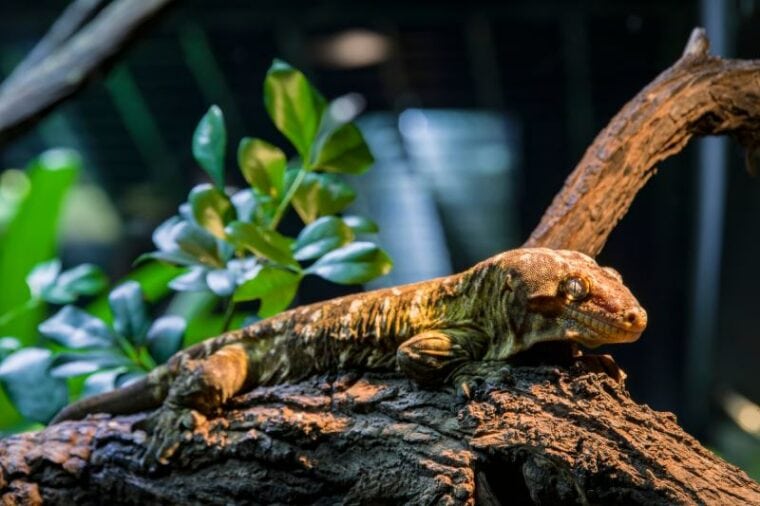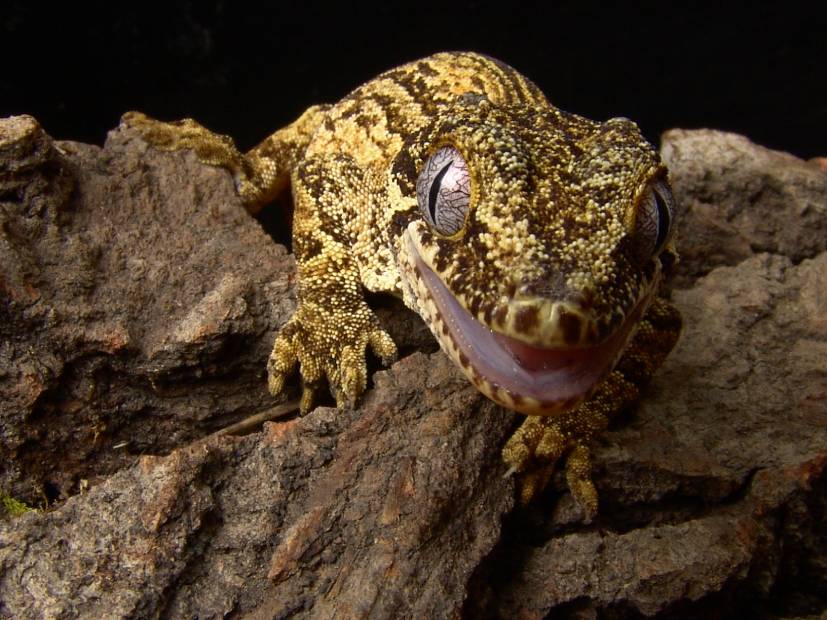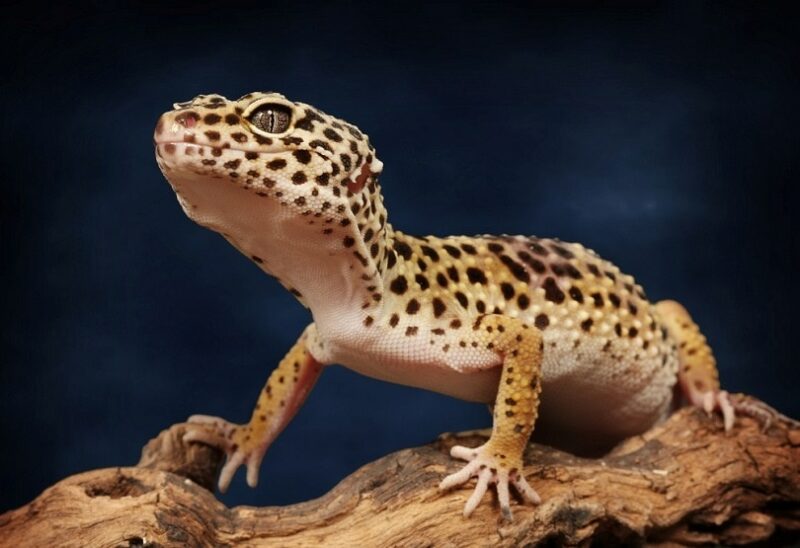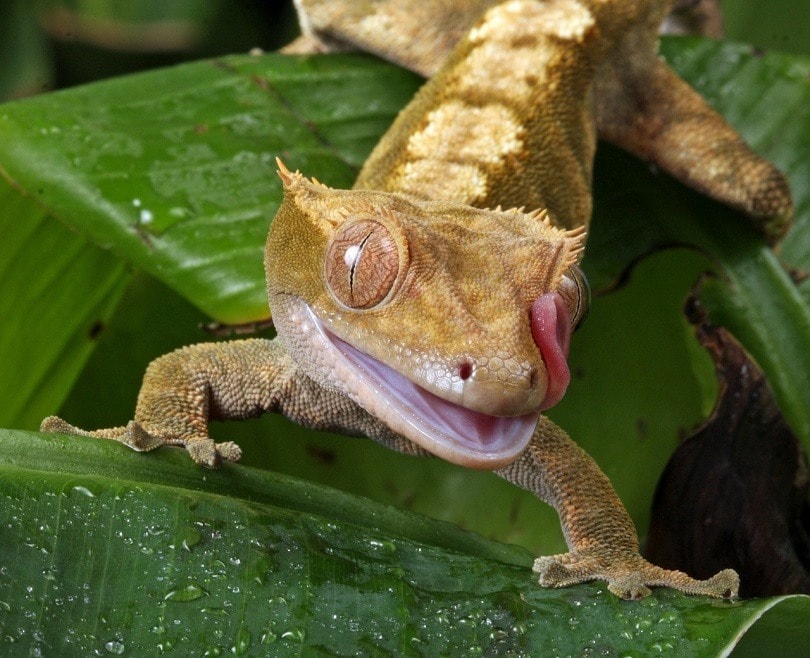
Click to Skip Ahead
There’s a big debate in the leopard gecko pet community about whether you should offer UVB lighting to your gecko. The short answer is, yes, UVB should be part of your leopard gecko’s lighting. That said, while they will likely benefit from it, it isn’t necessary for their survival.
Leopard geckos are nocturnal, and unlike diurnal reptiles, they can synthesize vitamin D3 from the beneficial bacteria in their gut, sometimes known as their microbiome. Still, while the inclusion of lighting in their enclosure is optional, it’s recommended.
Lizard Lighting 101: UVA vs. UVB
UV rays are a form of energy found in natural sunlight and artificial lighting. Scientists measure UV rays through wavelengths to understand how powerful each type of UV rays is. In this post, we’re only covering UVA and UVB.
When it comes to UVA rays, they form about 95% of the UV radiation that touches the earth. They have a low amount of energy and a longer wavelength, allowing them to penetrate deep within the skin. UVB rays have more energy than UVA rays and a shorter wavelength, meaning they don’t penetrate the skin as deeply.
Each type of UV ray has a certain role, offering something the other one does not. In the case of UVB rays, they help many animals produce vitamin D3, an important vitamin responsible for bone and muscle health.

Why Geckos Benefit From UVB Lighting
Leopard geckos may benefit from UVB lighting in several ways. In nature, when these lizards wake up in the evening, they often spend a bit of time basking on rocks that have been in the sun the entire day. They absorb heat from these rocks, which helps warm their bodies and regulate their temperature. In captivity, your pet lizard may do the same with their UVB lamp left on during the day, despite their being asleep at that time.
In addition, some pet lizards slowly acclimate to their environment and begin roaming about during the day. These pets would benefit from UVB much like any other diurnal lizard would.
Finally, experiments have shown that while the lack of UVB does not hamper growth in juvenile leopard geckos, its inclusion does offer a few benefits 1.
Do I Still Need to Offer UVB if I Offer Supplements?
Leopard geckos aren’t at risk if you only offer vitamin D3 and calcium as supplements and don’t bother with UVB lighting. The important thing is that your gecko obtains some form of these vitamins and minerals. Offering UVB will definitely help with regulating their day/night cycles, though, and you still need to coat your gecko’s food with vitamin D3 and calcium for optimal nutrition.
How Much UVB Exposure Does My Leo Require?
Leopard geckos don’t strictly require UVB, but they may benefit from it nonetheless. Try to aim for about 5–10% UVB lighting. You can time your lights to shut off/turn on at specific times of the day to help you.
Your leopard gecko should always have a heat lamp that maintains a temperature variance between 77°F and 86°F (25°C and 30°C). The enclosure should never drop below 70°F (21°C) at night.
A leopard gecko also needs a source of white light on a 12-hour cycle. This helps provide a sense of natural light to keep your gecko on their natural sleep cycle. Some heat lamps provide this, but if yours doesn’t, you can opt for an incandescent or fluorescent bulb. Remember that your gecko will sleep during the day and be awake at night. They don’t require a light bulb at night, but rather during the day (to stimulate “daytime” indoors).

FAQ
Can UVB Burn Leopard Geckos?
Yes, UVB can burn your leopard gecko if the setting is too high or if it is too close to them, so you don’t want to leave it on any longer than necessary and should ensure that it is not too close to their basking spot.
Can I Use a Nearby Window for Free UVB Rays?
Since leopard geckos don’t require UVB, this is an acceptable option. For lizards and reptiles that do require UVB, though, you generally can’t use sunlight through a window to adequately light your pet’s enclosure. Window panes have several layers, and many of the health benefits of sunlight are filtered out when it reaches your pet.
Final Thoughts
Although UVB rays are technically unnecessary for a leopard gecko, their natural environments show that they can benefit from this addition. There’s no need to panic if you’re not using UVB lighting right now. But maybe in the near future, you can start using one to make their life all the more enriching.
- See Also: How Much Does a Leopard Gecko Cost?
Featured Image Credit: Danny Ye, Shutterstock









